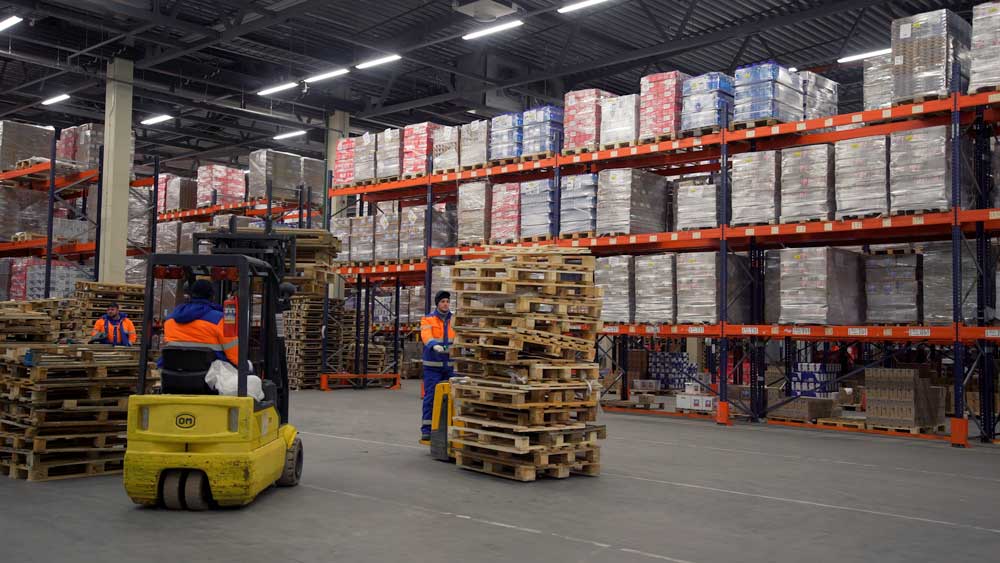The landscape of wholesale and distribution has undergone a significant transformation over the past few decades. Historically, these industries relied heavily on physical transactions, face-to-face negotiations, and paper-based catalogs. Wholesalers and distributors operated in a largely manual environment, where relationships and local proximity played a pivotal role in business success.
However, a significant shift has occurred with the advent of digital technology. E-commerce has emerged as a formidable force, redefining the paradigms of wholesale and distribution. This shift is not merely a change in the medium of transactions but represents a fundamental evolution in how these businesses operate, engage with customers, and manage their supply chains.
The key differences between traditional models and e-commerce-driven models in wholesale are profound:
Market Access: Traditional models often limit wholesalers and distributors to localized markets or regions with a physical presence. E-commerce, by contrast, erases geographical boundaries, allowing businesses to reach a global audience.
Operational Efficiency: E-commerce introduces automation in various aspects of the business, from inventory management to order processing, significantly streamlining operations.
Customer Engagement: Traditional models relied on personal relationships and could not often scale customer interactions. E-commerce platforms, on the other hand, offer scalability and the ability to engage with a more extensive customer base more efficiently.
Data Utilization: E-commerce platforms provide access to rich data analytics, allowing businesses to make informed decisions based on customer behavior, market trends, and operational metrics.

Advantages of Ecommerce for Wholesalers and Distributors
The adoption of e-commerce in wholesale and distribution brings numerous advantages:
Expanded Market Reach and Global Accessibility: E-commerce enables wholesalers and distributors to reach beyond their traditional geographical limitations. They can now tap into global markets, access a broader customer base, and diversify their business risk.
Enhanced Efficiency in Operations and Inventory Management: E-commerce platforms offer sophisticated tools for inventory tracking, demand forecasting, and automated order processing. This leads to more efficient operations, reduced manual errors, and optimized inventory levels.
Cost Savings and Increased Profitability: By moving online, wholesalers and distributors can reduce the overhead costs associated with physical stores and manual processes. E-commerce also opens up opportunities for better pricing strategies and higher margins.
Data-driven Insights for Better Decision-Making: The abundance of data available through e-commerce platforms provides invaluable insights into customer preferences, market trends, and operational efficiencies. This information is crucial for strategic planning and making informed business decisions.
Improved Customer Relationships Through Personalization and Digital Engagement: E-commerce allows for personalized marketing and sales strategies based on customer data. By understanding customer needs and behaviors, wholesalers and distributors can tailor their offerings, enhance customer engagement, and build stronger, long-lasting relationships.
Critical Strategies for Successful E-commerce Implementation
The transition to an e-commerce model in wholesale and distribution is about adopting new technology and strategically aligning the business to leverage the full potential of the digital marketplace. Here are key strategies for a successful e-commerce implementation:
Identifying the Target Market and Niche Specialization: Understand your audience and the specific needs of your niche market. This involves detailed market research to identify potential customer segments, their purchasing behavior, preferences, and pain points. Tailoring your offerings to meet the unique demands of your chosen niche can significantly enhance your market position.
Developing a User-Friendly, Mobile-Optimized E-commerce Platform: Your e-commerce website should be intuitive, easy to navigate, and responsive to all devices, especially mobiles. In an era where a substantial portion of browsing and purchasing happens on smartphones, having a mobile-optimized platform is crucial for reaching a wider audience.
Effective Marketing Strategies for Online Wholesale Businesses: Deploy a comprehensive digital marketing strategy that includes SEO, content marketing, social media engagement, and email marketing. These tools are essential for building brand awareness, attracting new customers, and driving sales. Tailoring your marketing content to address your target audience’s specific needs and interests can lead to higher engagement and conversion rates.
Building Strong Relationships with Suppliers and Customers: Establishing robust relationships with both suppliers and customers is vital. This includes negotiating favorable terms with suppliers and providing exceptional customer service. Customer relationship management (CRM) tools can be instrumental in maintaining these relationships and ensuring customer loyalty.
Utilizing Technology for Inventory Management and Process Automation: Implementing the right technology can significantly enhance operational efficiency. Automated inventory management systems help track stock levels, predict demand, and plan purchases. Process automation can streamline order processing, billing, and shipping, reducing manual errors and saving time.

Choosing the Right E-commerce Platform
Selecting the appropriate e-commerce platform is a critical decision for wholesalers and distributors. The ideal platform should not only meet current business needs but also be adaptable to future growth and changes in the market.
Essential Features and Capabilities for Wholesale E-commerce Platforms: The chosen platform should have robust features tailored to wholesale operations, such as bulk ordering, tiered pricing, custom catalogs, and customer-specific discounts. An intuitive user interface for the business and its customers is crucial for smooth transactions.
Integration with Existing Business Systems for Seamless Operations: The platform should easily integrate with existing business systems such as ERP, CRM, and accounting software. This integration is essential for synchronizing data across systems, providing real-time insights, and ensuring consistency in operations.
Scalability to Accommodate Business Growth and Market Changes: As the business grows and market dynamics evolve, your e-commerce platform should be able to scale accordingly. This includes handling increasing transactions, expanding product lines, and entering new markets. Scalability ensures that the platform will continue to serve the business effectively without significant overhauls.
Choosing the right e-commerce platform requires careful consideration of these factors to ensure that it aligns with the business’s strategic goals, operational needs, and growth trajectory. The right platform can be a powerful tool for the success and expansion of a wholesale e-commerce business.
Navigating Challenges and Future Trends
Adopting e-commerce in wholesale and distribution presents its unique set of challenges. However, navigating these effectively can set the foundation for a future-proof business.
Overcoming Common Obstacles in Adopting E-commerce
Resistance to Change: One of the primary challenges is the inherent resistance to change, particularly in businesses accustomed to traditional models. Overcoming this requires a mindset shift, educating stakeholders about the long-term benefits of e-commerce.
Technology Integration: Integrating new e-commerce platforms with existing systems can be daunting. Choosing platforms that offer seamless integration capabilities and provide adequate staff training for smooth transition and operation is essential.
Data Security and Privacy: As businesses move online, data security becomes paramount. Implementing robust cybersecurity measures and staying compliant with data protection regulations is critical.
Supply Chain Management: Adapting to the dynamic demands of an online marketplace requires an agile and efficient supply chain. This may involve re-evaluating supplier relationships and logistics strategies to ensure responsiveness and reliability.
Anticipating Future Trends and Technological Advancements
Artificial Intelligence and Machine Learning: AI and ML are set to revolutionize e-commerce by offering personalized shopping experiences, predictive analytics for inventory management, and enhanced customer service through chatbots.
Blockchain Technology: Blockchain could significantly impact supply chain transparency and efficiency, offering a more secure and transparent way to track product journeys from manufacturer to end-user.
Sustainable and Ethical Practices: An increasing trend towards sustainability and ethical practices in business operations will likely influence wholesaler choices, from sourcing to packaging and shipping.
Augmented Reality (AR) and Virtual Reality (VR): These technologies could transform the online shopping experience, allowing customers to visualize products more realistically.

Looking to the Future
The shift towards e-commerce in wholesale and distribution is not just a trend but a strategic evolution crucial for business sustainability in a digital age. The key points outlined in this article emphasize the importance of understanding the shift to e-commerce, leveraging its advantages, implementing effective strategies, choosing the right platform, and navigating challenges while staying ahead of future trends.
As we look to the future, wholesale and distribution e-commerce is poised for significant growth. Technological advancements and consumer behavior shifts will continue to shape the landscape. It is an opportune time for businesses to embrace this digital transformation. By doing so, they open doors to expanded markets, enhanced operational efficiencies, and, ultimately, a more robust and resilient business model.
In conclusion, the call to action for businesses is clear: embrace the digital transformation with open arms. Innovate, adapt, and be prepared to ride the wave of change that e-commerce brings. The future is digital, and the time to act for the wholesale and distribution industry is now.

